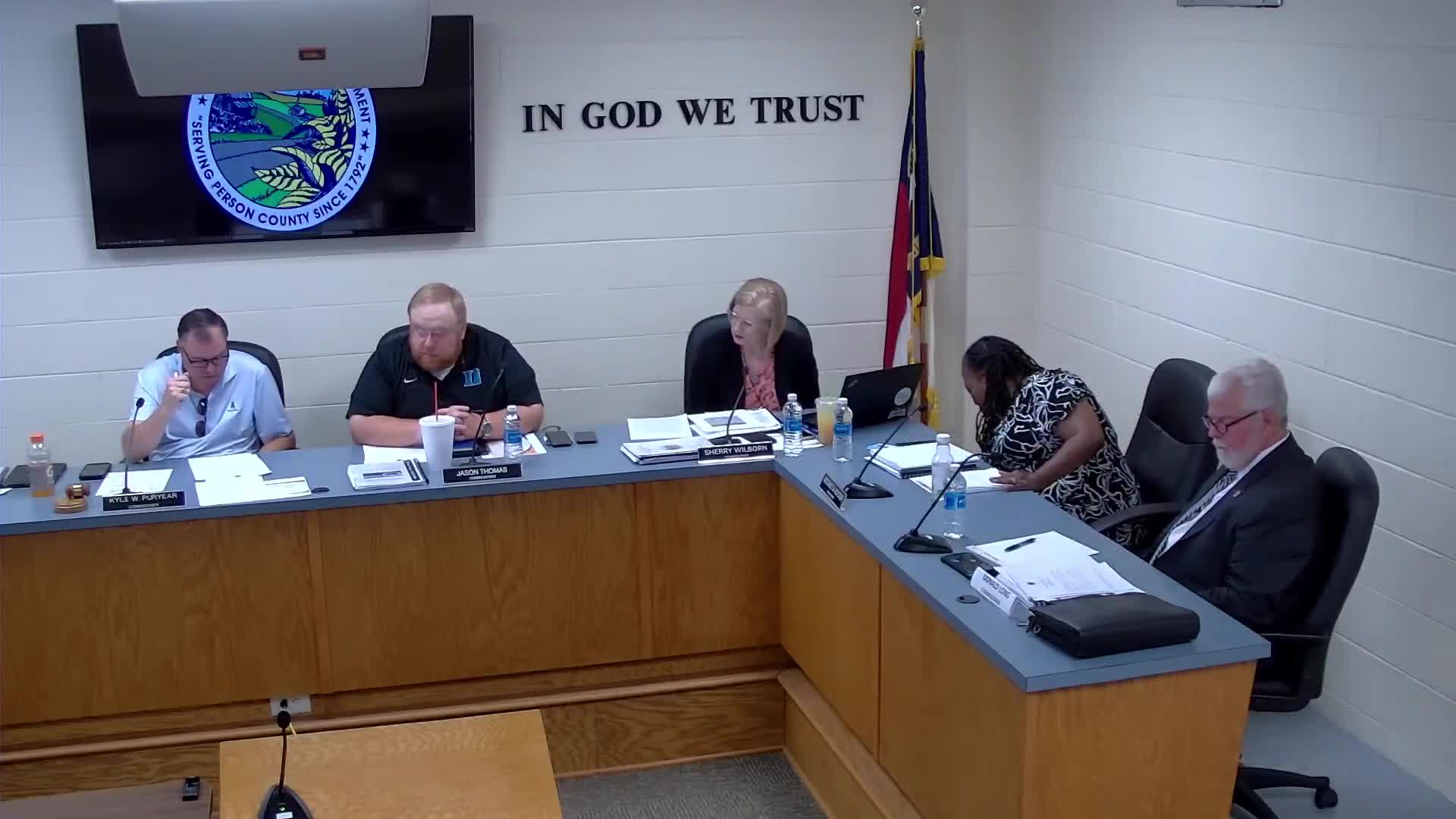Article not found
This article is no longer available. But don't worry—we've gathered other articles that discuss the same topic.
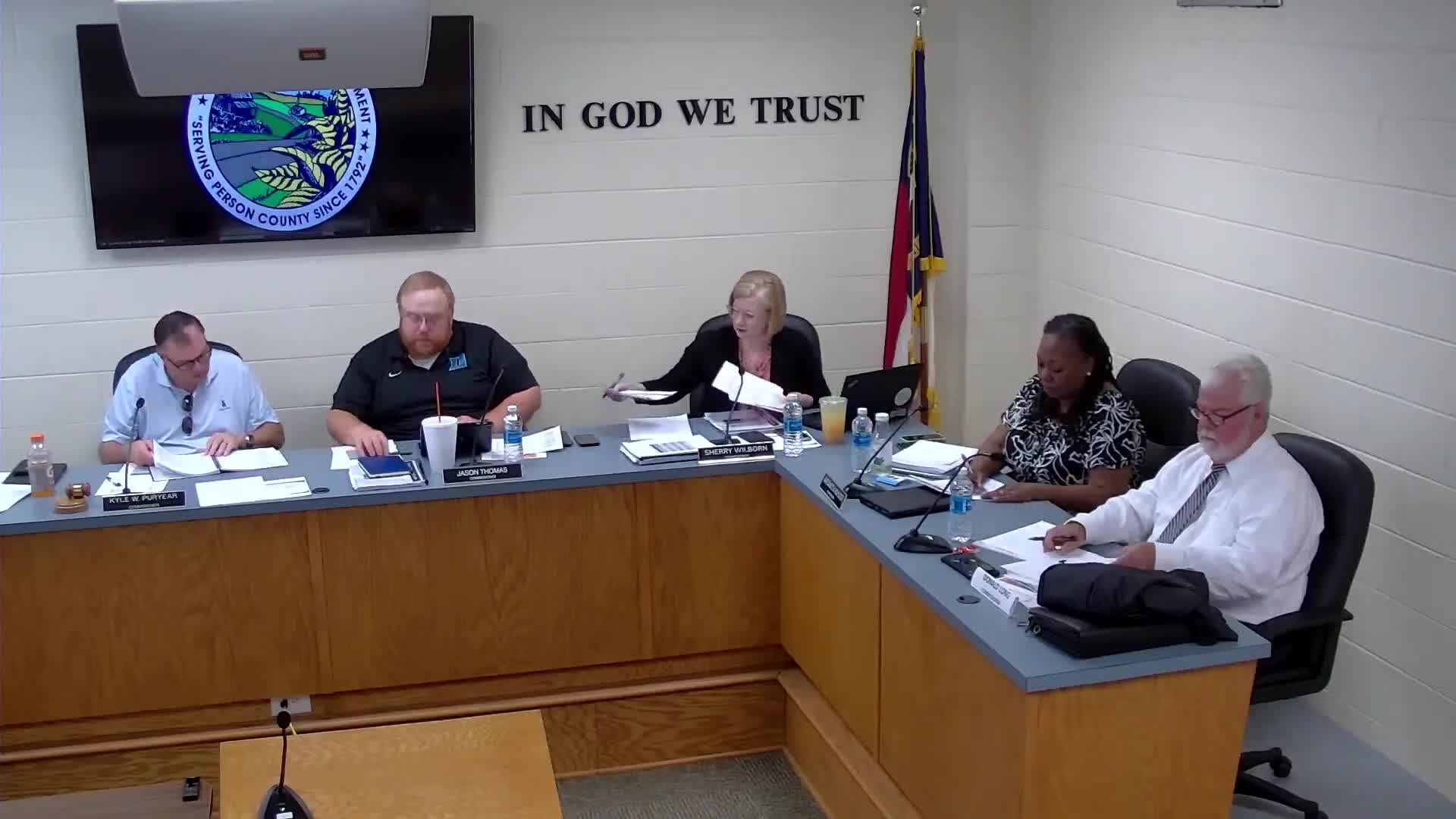
Person County commissioners instruct staff to prepare budget ordinance for 63¢ tax rate, approve several midyear budget adjustments
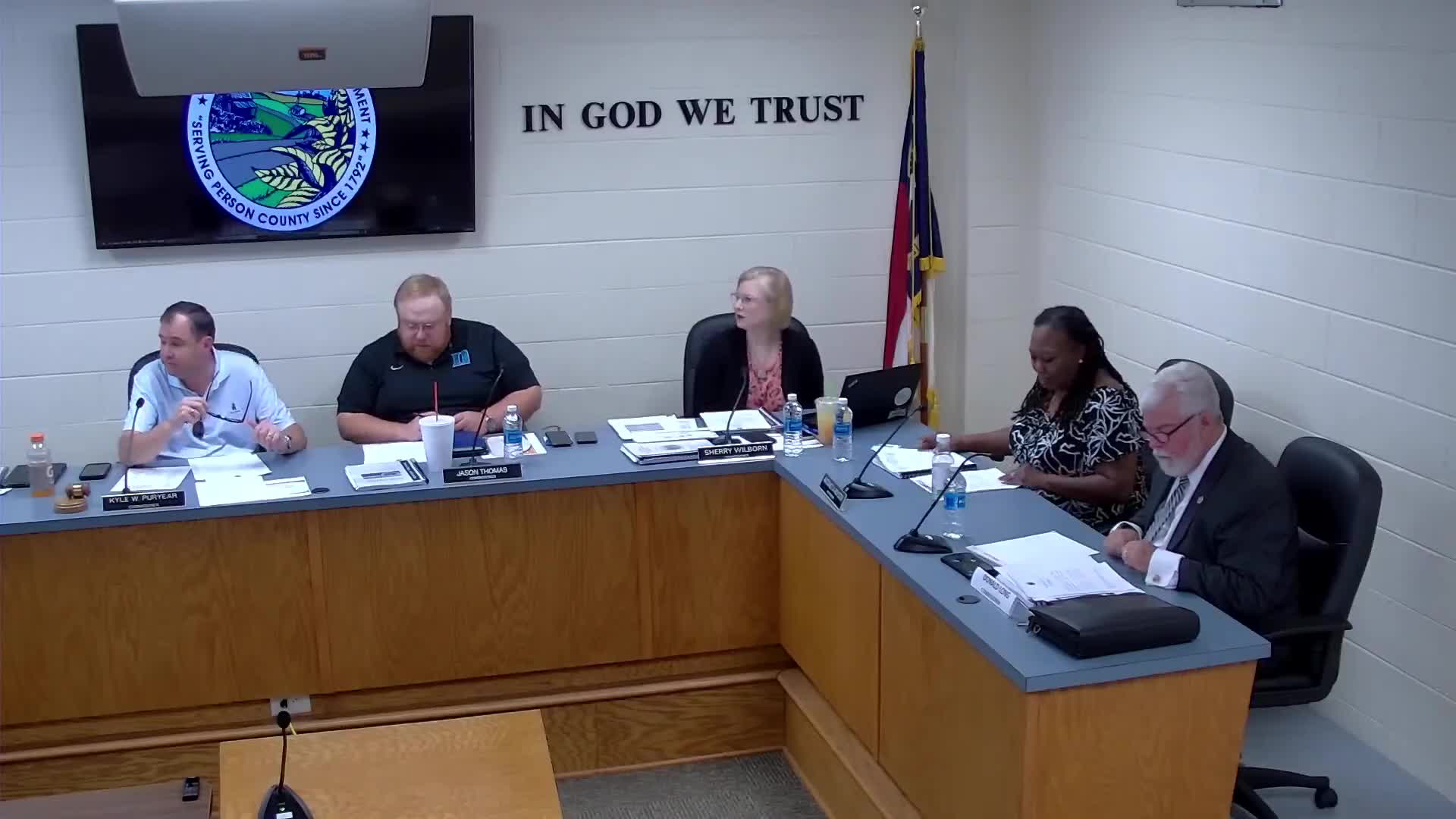
Board approves resolution appointing review officers under North Carolina law
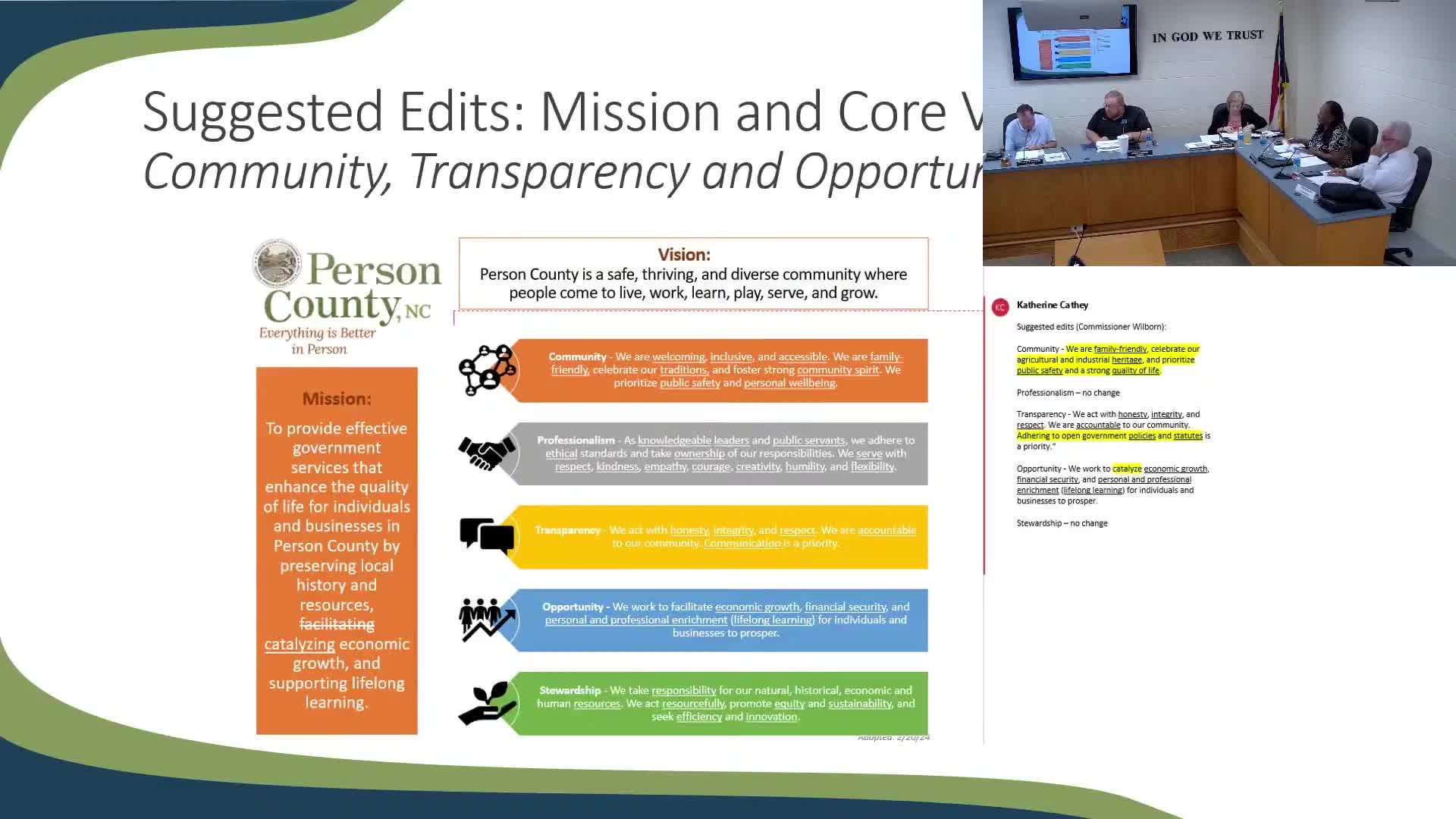
Person County commissioners adopt 2025–27 strategic plan with minor edits; board removes community survey item
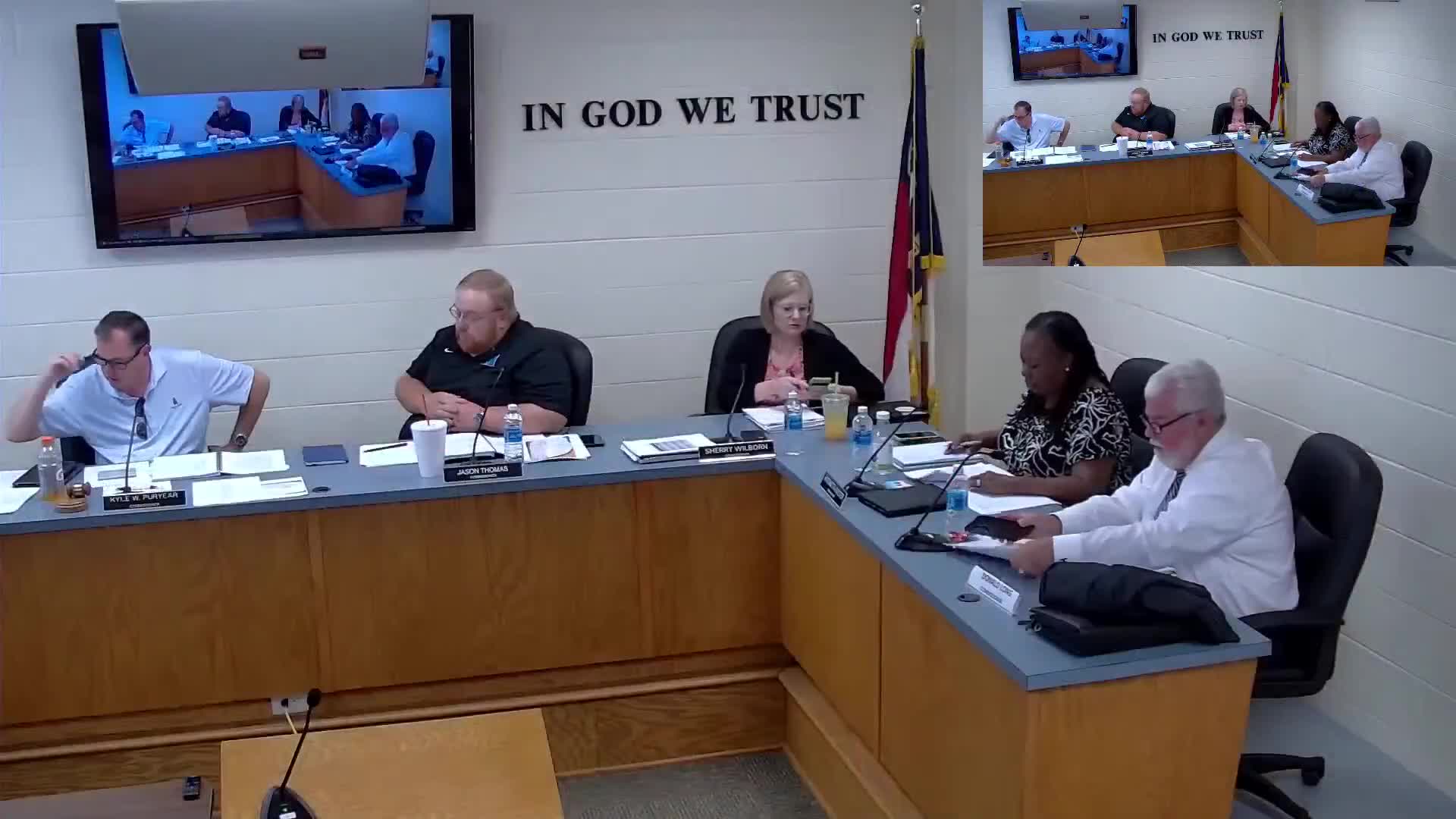
Commissioners adopt revised organizational chart; direct staff to review Economic Development Commission governance
